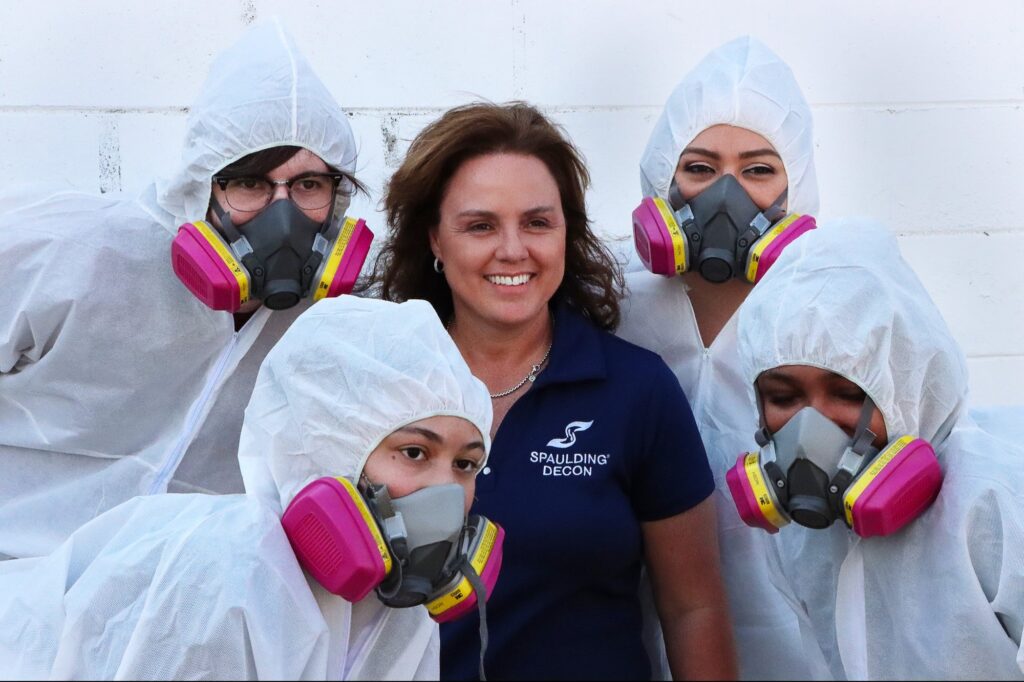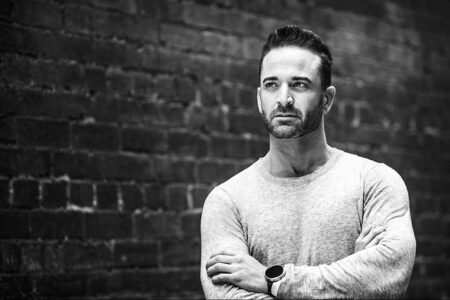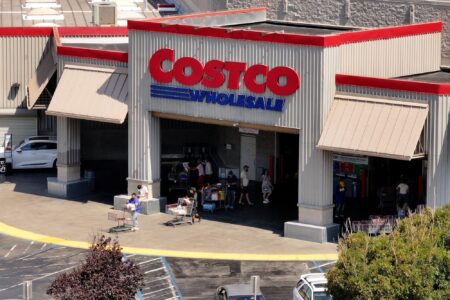Entrepreneur
In 2005, Laura Spaulding was asked a question that sparked a $20 million business.
A cop who’d been working in Kansas City homicide for a few years, Spaulding was filing a report on a gruesome murder when one of the victim’s family members asked her when the police would be coming back to clean up the crime scene.
“I said, ‘We don’t clean that up,'” Spaulding recalls. “And then I just got to thinking about what she’d asked. I went home and searched on Google. And I realized, ‘Oh, my God, there’s nowhere for this lady to go.'”
Most cops would have stopped there, but Spaulding was not most cops. “I thought, ‘Okay, I’ll do the cleanup of crime scenes as a side hustle,'” she told me on the Fail Your Way to Success podcast.
While Spaulding believed in her idea, she was nevertheless surprised to discover that, within six months, her side hustle was bringing in far more income than her cop salary. Today, Spaulding Decon is the only crime scene clean up business that also flips the real estate after they clean it up. It’s also a $20 million franchise.
Related: This College Student Started a Side Hustle So He Didn’t Have to Bartend Until 4 am. Now He’s Earning $7,000 a Month — and Putting It to Good Use.
From rags to riches
No one could accuse Spaulding of having had an easy road to becoming a multi-millionaire.
She was a homeless 18-year-old when she decided to apply for the military as a way of getting her education paid for. She’d only been in the service for six months when she was kicked out alongside two other gay women.
Undaunted, Spaulding took up as many loans and grants as necessary to pay her tuition at the University of Tennessee. After graduating, Spaulding was hired as a cop in Kansas City. But a year into the job, she was getting antsy. She wanted to make big moves—and more money. A supervisor asked who wanted to make overtime by working undercover as a prostitute. Spaulding volunteered.
Working the streets
Masquerading as a sex worker, Spaulding hit the streets, meeting everyone from “guys in BMWs with the car seat in the back” to guys who’d just gotten off work at their construction sites. No matter who it was, Spaulding followed the same procedure: have the initial conversation, tell the customer to meet around the corner, and then let the SWAT team take over.
From there, Spaulding started working undercover in narcotics, posing as a drug addict at crack houses. But after 18 months, Spaulding saw that the undercover life was in danger of destroying her. “I realized the work was changing who I was,” she recalls. “I was starting not to trust anyone, to constantly be looking over my back and to alienate my friends.”
And so she went back to being a regular cop—and that’s when inspiration hit.
Related: He Launched His Creative Side Hustle Out of a Garage. Now It’s Worth $225 Million.
Building her crime scene business
When she began researching existing crime scene clean-up businesses, Spaulding discovered that there was only one in Dallas. So, she asked them if they could train her, and she used her one-week vacation to do the training. “The only savings I had at that point was $2500,” she recalls. “It was do or die.”
Returning to Kansas City, she visited five banks to get a start-up loan. “They all told me no, so I lied to the fifth one and told them I needed a home equity loan,” she says. “They gave me $15,000.”
After her first crime scene clean-up, Spaulding quit being a cop and relocated to Florida, where she realized she could marry her passion for crime scene cleanup with her love for real estate if she offered to buy the real estate where the crime took place and then flip it.
Getting the word out
There was one problem: no one knew that there were companies that did crime scene clean-up since most assumed, just like the woman who inspired Spaulding to start the business, that the cops took care of it.
“I thought, ‘We don’t have a billion-dollar budget for TV commercials and billboards and all that stuff,'” Spaulding recalls. So, she pitched her team to invest heavily in social media. They all tried to talk her out of it, saying that documenting crime scene clean-ups would come off as insensitive, if not downright offensive—and that no one would want to watch it. Plus, it was 2019—kind of late to try to build a social media following.
Spaulding ignored them, got a videographer to follow the team around as they cleaned up the scenes, and within two months, they had 100,000 YouTube subscribers. Today, they have 1.36 million subscribers on YouTube, 4.5 million followers on TikTok, and 750,000 followers on Instagram.
Spaulding Decon has continued to thrive, with 25 locations across the United States. What started as a desire to solve a problem for people on the worst day of their lives has become something this formerly homeless undercover cop could never have imagined.
Read the full article here











